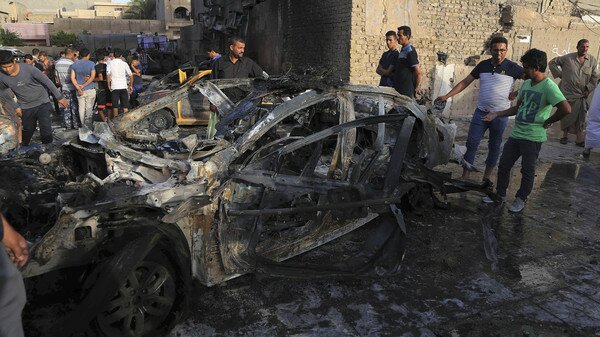
In August past year, at least 64 people were killed in an attack on a Sunni mosque in Diyala in what locals believed was a retaliatory attack against Diyala tribes that refused to proclaim loyalty to the Islamic State group.
The al-Qaeda splinter group said in a Twitter message that the attack had been carried out by a suicide bomber driving a auto packed with almost 3 tons of explosives.
The security situation in Iraq has drastically deteriorated since June 2014, when bloody clashes broke out between security forces and Islamic State militants.
The blast is reported to have destroyed several buildings, crushing some victims and leaving the streets filled with debris.
Ali al-Tamimi, the general director of the Diyala Health Directorate, confirmed the death toll.
Dozens of people were also wounded by the blast in Khan Bani Saad, approximately 30km northeast of the capital Baghdad.
The bomb had exploded as people celebrated the end of Ramadan in the town.
Crowds consumed by grief and anger over the attack smashed the windows of cars parked in the street.
Three days of mourning have been declared in the province and Eid festivities cancelled.
Security forces and militia groups are now focused on the western province of Anbar, where they have been gearing up for an offensive to retake the mainly Sunni governorate – Iraq’s largest. The “Islamic State” has been behind several similar large-scale attacks on civilians or military checkpoints as part of its strategy to sow discord and expand its territory.
Saudi Arabia says it has broken up planned Islamic State attacks in the kingdom, while announcing it has arrested over 400 people in its raids.
